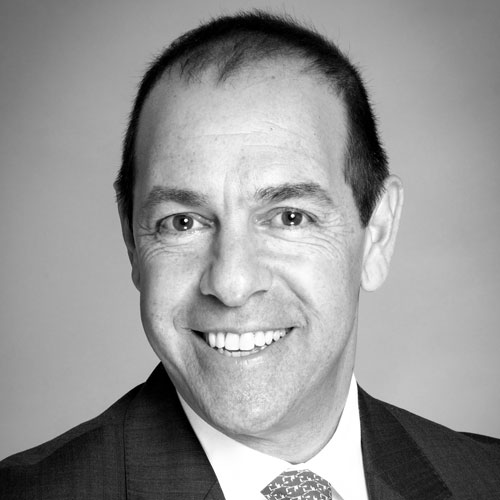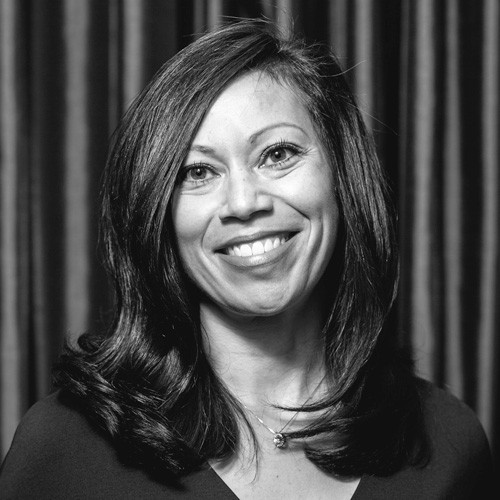When you’re tasked with important decisions every day, like Joe Bonaccorsi, what better way to relax than to brew beer in the basement? “It’s definitely relaxing to head downstairs after dinner and tinker around with the kegs, tasting my latest brew,” Bonaccorsi says. During the day, as senior vice president, general counsel, and secretary of Akorn, Bonaccorsi and his team handle all of the legal issues that the global pharmaceutical company encounters. “Each of us has an area we specialize in. For example, one member of the team is an intellectual property attorney. She spends a lot of time with our R&D group. She attends their meetings, adding her two cents as they explore new products and advising them of any issues or patent challenges they might encounter on the road to development,” he says.
Attorneys are also assigned to Akorn’s business development and mergers and acquisition teams. The company has its roots in Taylor Pharmacal, which was launched in 1948, and Akorn Ophthalmics, which was founded in 1971. The two parent companies combined forces in 1992, and Akorn, as it is currently structured, was listed on the American Stock Exchange in 2002.
Off the Clock with Joe Bonaccorsi
On brewing beer: “I like beer and thought it was something I could learn to do. I took a class and now have an array of bottles and kegs fermenting in the basement. It’s great to dabble and to enjoy cold home brew whenever I feel like it. And, you know, it’s pretty darn good.”
On teaching law school: Joe and his wife Mary Clare, who serves as chair of the healthcare litigation practice at Polsinelli, co-teach a course in healthcare advocacy to second-year students at Loyola University School of Law. “We encourage them to keep their writing and arguments simple, to focus on clear communication. They can get fancy later, but first they have to learn and incorporate the fundamentals of good writing.”
On raising twins: The Bonaccorsis have twenty-one-year-old twin daughters. “While both of them have the character and intelligence to be great lawyers, we don’t know yet whether they will attend law school. But I am certain they will be successful at whatever career they choose.”
At that time, Bonaccorsi had not yet begun his tenure at Akorn. He served as senior vice president, general counsel, and secretary at Option Care, a home infusion services and healthcare provider. “Option Care had been one of my clients at Sanchez Daniels & Hoffman,” Bonaccorsi says. “The CEO, Raj Rai, recruited me to join the company in 2002.” Option Care was sold to Walgreens in 2007, and Bonaccorsi stayed eighteen months to help with the transition and oversee several acquisitions.
But nothing is static in the pharmaceutical industry. While dynamic changes were underway at Option Care, Akorn was on the brink of bankruptcy. Rai suggested Bonaccorsi contact John Kapoor, chairman of the board at Option Care and Akorn, to see if Akorn could use some in-house legal help. It could. So Bonaccorsi joined the Illinois-based company as its first in-house lawyer and has since expanded the team to include three other lawyers and two staff members.
What had gone wrong at Akorn? “Its long, successful history was overlooked for a period of time,” Bonaccorsi says. “They forgot what Akorn was and could be. Management had taken its eye off the ball and diversified too much, going into distribution and contract manufacturing instead of focusing on developing and manufacturing the company’s own products.”
But Bonaccorsi saw an opportunity. “When the new management team arrived, we refocused our efforts on an ‘old is gold’ strategy by shedding unprofitable business lines and reviving worthy products,” he says. “The company had good bones and lots of good products and people. We just had to identify those people, keep them incentivized and interested, shed some bad contracts they’d acquired, and get back to the basics.”
Bonaccorsi’s strategy was successful. When he joined the company in May 2009, it was trading at $0.81 and had a market cap of approximately $78 million. As of June 2015, those numbers had grown to $48 and $5.4 billion, respectively. The company approved fourteen new products during the first six months of 2015, and has begun the getting its manufacturing facilities in India approved by the US Food and Drug Administration (FDA).
“We have FDA-approved plants in Illinois, New Jersey, New York, and Switzerland,” he says. “The plants in India (acquired from Kilitch Drugs in 2012) are large, and would greatly increase our volume, but until they meet all the FDA’s requirements, they’re only able to manufacture products for non-US markets.”
Bonaccorsi says the Akorn job continues to excite him. “The pharmaceutical industry is one of the most dynamic and competitive industries there is today, and our focus on generics will enable us to maintain high sales volume, since we can deliver our products at a lower cost than the branded manufacturers,” he says. “This will be increasingly attractive to individuals and employers who are making healthcare decisions and shouldering the related costs. We have a very strong foundation for the future, and I continue to be enthused to be part of it.”

